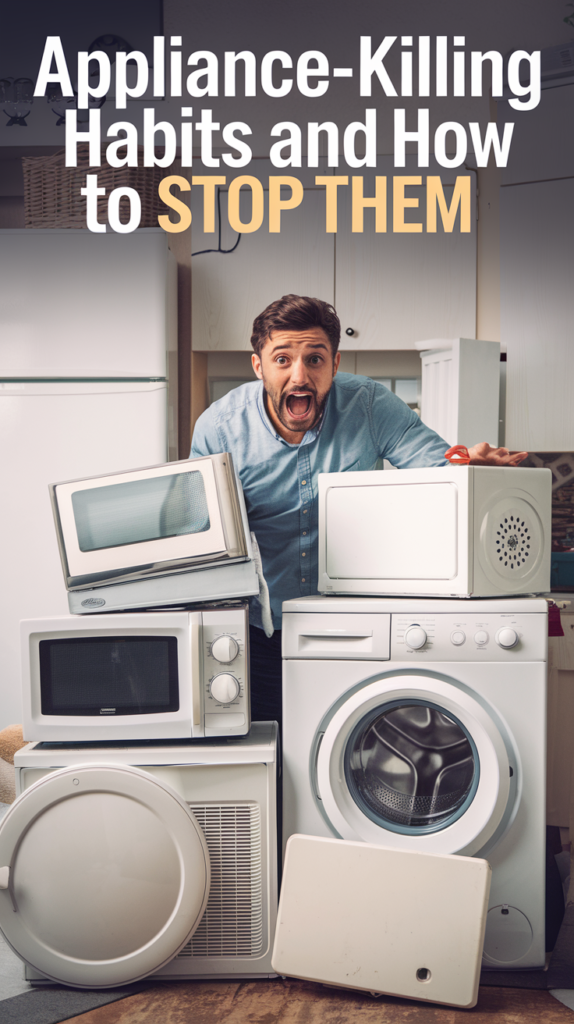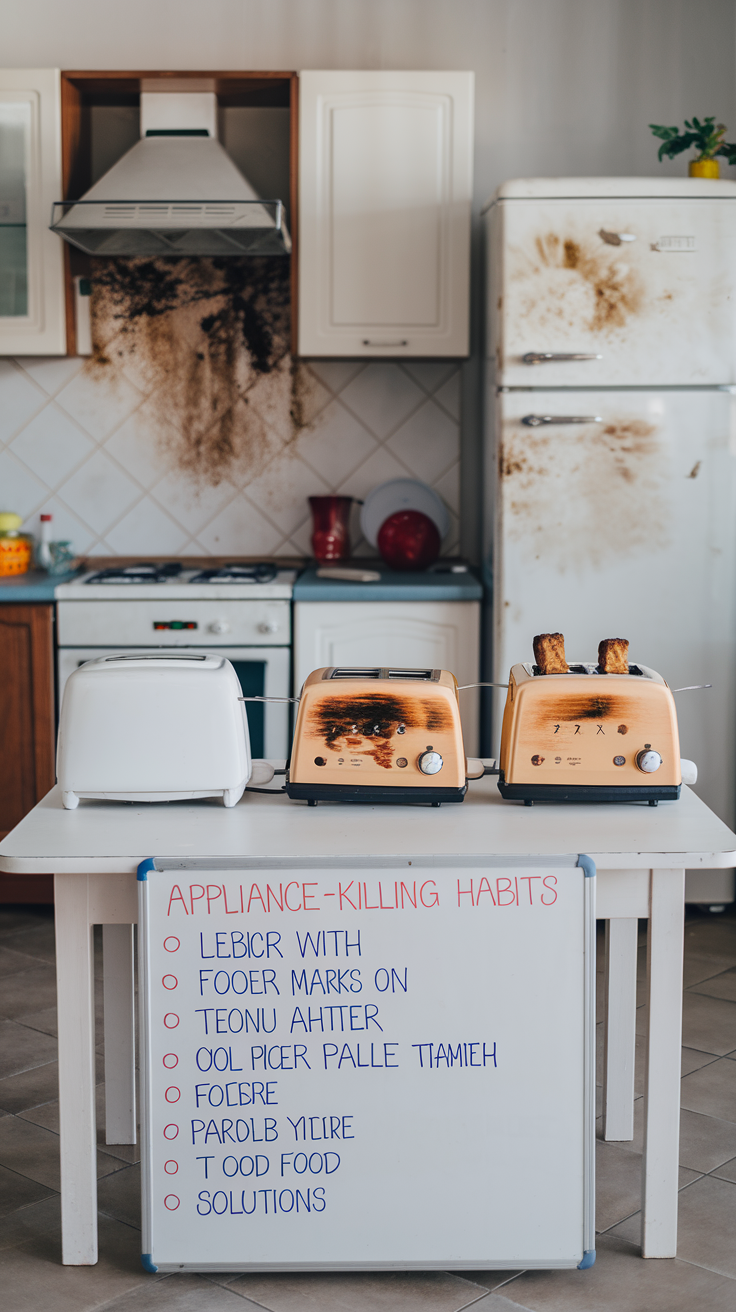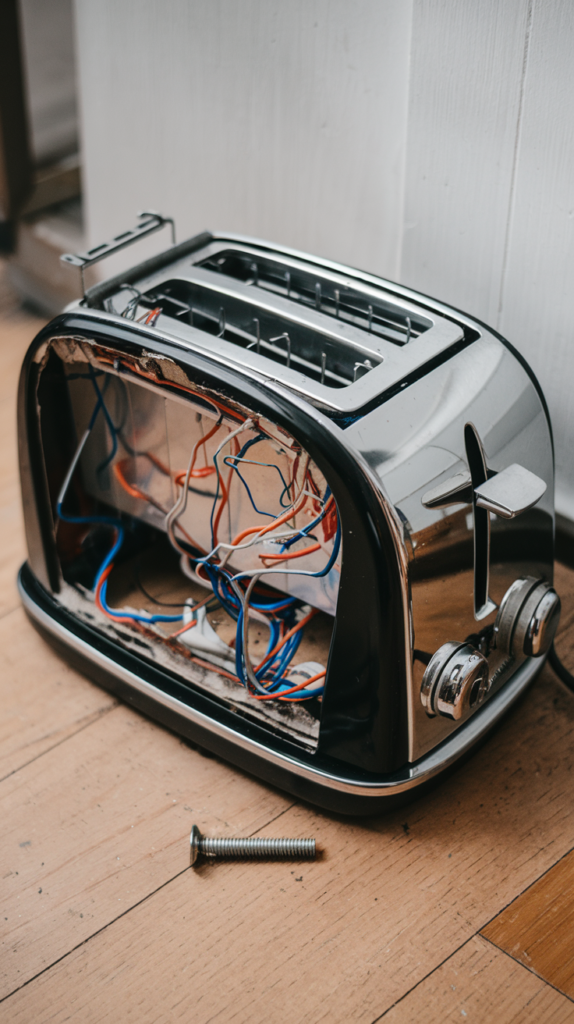5 Appliance-Killing Habits and How to Stop Them
In our fast-paced lives, we often overlook the simple maintenance of our appliances, which can lead to expensive repairs or even total breakdowns. Understanding and correcting these appliance-killing habits can prolong the life of your devices and save you money. Let’s explore five common habits that can damage your appliances and effective strategies to prevent them.
1. Neglecting Regular Cleaning
One of the most detrimental habits is neglecting regular cleaning. Appliances, especially in the kitchen, accumulate grease, food particles, and dust. Over time, these buildups can hinder their performance and even cause permanent damage.
How to Stop This Habit
- Create a Cleaning Schedule: Designate specific days for cleaning each appliance. For instance, deep clean your oven and refrigerator every month.
- Use Appropriate Cleaners: Different appliances require specific cleaning methods. For example, stainless steel appliances need gentle, non-abrasive cleaners to avoid scratches.
- Utilize Appliance Covers: Consider investing in appliance covers for appliances in storage or rarely used, such as a juicer appliance or an appliance bar. This keeps them clean and dust-free.
| Appliance Type | Recommended Cleaning Frequency | Best Cleaning Method |
|---|---|---|
| Refrigerator | Monthly | Mild detergent and water |
| Oven | Monthly | Baking soda and vinegar |
| Dishwasher | Monthly | Vinegar rinse |
| Microwave | Weekly | Soap and water |
2. Overloading Appliances
Another habit that can lead to appliance failure is overloading. This is particularly common with washers, dryers, and dishwashers. Exceeding the recommended load can strain motors and belts, resulting in costly repairs.
How to Stop This Habit
- Follow Manufacturer Guidelines: Always check the appliance manual for load recommendations. Each appliance has specific limits for a reason.
- Use Appliance-Specific Containers: For appliances like blenders or food processors, use recommended containers to ensure optimal capacity and performance.
- Implement a “One-in-One-out” Rule: This can be particularly effective in kitchens with limited storage. If you acquire a new appliance, consider getting rid of an old one.
| Appliance Type | Maximum Load Capacity | Consequences of Overloading |
|---|---|---|
| Washer | 12 lbs | Motor burnout |
| Dryer | 10 lbs | Inefficient drying, fire risk |
| Dishwasher | 10 place settings | Poor cleaning performance |
3. Ignoring Appliance Settings
Many users neglect to familiarize themselves with the settings and features of their appliances. Misusing settings can lead to inefficient operation or even damage.
How to Stop This Habit
- Read the Manual: Take time to understand the features and settings of your appliances. This includes learning how to use different cycles and modes effectively.
- Set Reminders for Maintenance: Use a digital calendar to set reminders for regular maintenance tasks, such as descaling your coffee maker or checking the filter in your dishwasher.
- Adjust Settings Based on Use: For example, if you have a slate appliance in your kitchen, adjust the temperature settings according to seasonal changes to prevent overheating or overcooling.
| Appliance Type | Common Settings to Learn | Importance |
|---|---|---|
| Oven | Bake, Broil, Convection | Cooking efficiency |
| Refrigerator | Temperature Zones | Food safety |
| Dishwasher | Eco, Heavy, Quick Wash | Energy savings |
4. Poor Ventilation
Poor ventilation around appliances, especially in an appliance garage or appliance pantry, can cause overheating and malfunction. Appliances like refrigerators and ovens need proper airflow to operate efficiently.
How to Stop This Habit
- Maintain Clearances: Ensure that there is adequate space around appliances. For example, if your appliance garage is adjacent to your fridge, make sure there is space for ventilation.
- Install Exhaust Fans: In kitchens, particularly those with multiple appliances, consider installing exhaust fans to improve airflow.
- Regularly Inspect Vents: Check for blockages in vents or fans on appliances like microwaves and ovens. Clean out any debris that could restrict airflow.
| Appliance Type | Required Clearance | Consequences of Poor Ventilation |
|---|---|---|
| Refrigerator | 1 inch on all sides | Increased energy use |
| Oven | 2 inches above | Overheating, fire hazard |
| Microwave | 3 inches above and on sides | Reduced performance |
5. Skipping Maintenance
Many homeowners fall into the habit of skipping maintenance, thinking it’s unnecessary until something breaks. This is a costly misconception, as routine maintenance is essential for longevity.
How to Stop This Habit
- Create an Appliance Maintenance Schedule: Document a maintenance plan that includes tasks like cleaning filters, checking hoses, and testing functionality.
- Invest in Professional Services: Schedule annual professional check-ups for major appliances such as HVAC systems or water heaters. These checks can catch issues before they become expensive problems.
- Educate Yourself on DIY Maintenance: Learn basic DIY maintenance for smaller appliances. For example, cleaning the lint filter in your dryer can significantly improve efficiency.
| Appliance Type | Suggested Maintenance Frequency | Common Maintenance Tasks |
|---|---|---|
| Refrigerator | Monthly | Clean coils, check seals |
| Washer | Quarterly | Clean lint trap, check hoses |
| Dishwasher | Monthly | Clean filters, inspect spray arms |
Final Thoughts
By understanding these appliance-killing habits and implementing proactive strategies, you can extend the life of your appliances, enhance their efficiency, and save on costly repairs. Simple actions, like regular cleaning and proper usage, can make a significant difference in your kitchen and home. Remember, a little maintenance goes a long way in preserving your appliance aesthetics and functionality.


